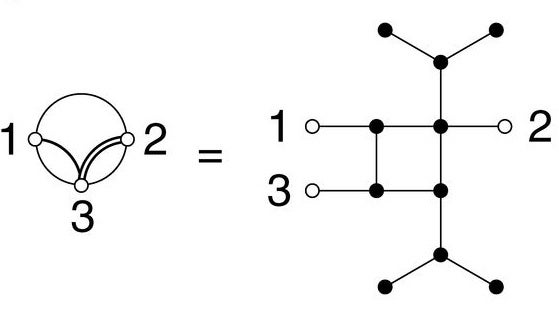The IQC team of Andrew Childs, David Gosset and Zak Webb have proposed a new universal computational model.

In the paper titled Universal computation by multi-particle quantum walk, the co-authors utilize quantum walks, the quantum mechanical analogue of classical random walks. Multi-particle quantum walk can be viewed as a collection of interacting particles that move in superposition on a graph, a structure in which pairs of vertices are connected by edges. Traditionally, quantum algorithms are implemented on a register of qubits by actively manipulating them according to a set of desired operations. In this new model, any desired quantum algorithm can be implemented by letting the qubits “quantum walk” on an appropriately chosen graph, without having to control the qubits.
Whereas many previous quantum-walk experiments have not offered scalability, the new construction offers the potential for significant quantum speedup. The team believes the model could be naturally realized in a variety of systems, including traditional nonlinear optics, neutral atoms in optical lattices and photons in arrays of superconducting qubits. Childs notes, “Quantum walk-based computing is particularly promising due to its universality. In principle, we can cast any quantum algorithm into this model. I would love to see an experimental implementation of our construction. I’d also like to see if new quantum algorithms could be discovered within the model.”
For more on the construction, read the full article in Science.